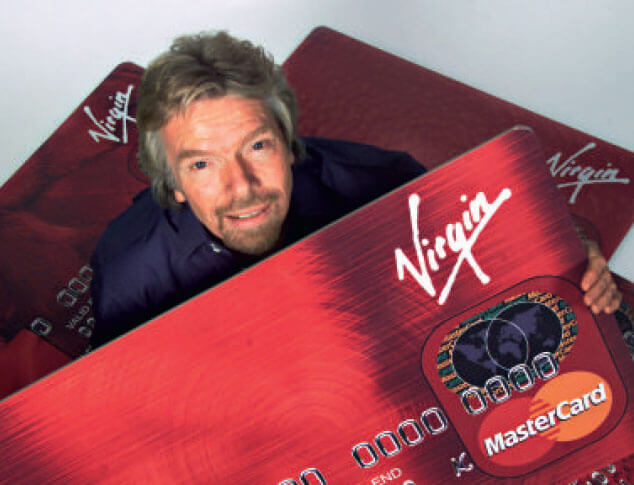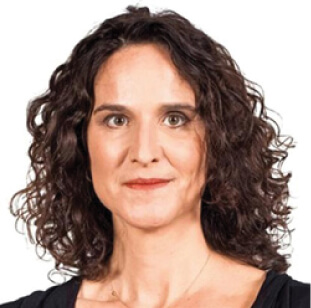Virgin modesty
The British have a contradictory attitude to wealth. When just two individuals recently shared a £160m capital gain, and paid not a penny in tax, they were feted in the press, their faces beaming out under cheery headlines.
They had made their fortune, not through endeavour or risk, but by choosing numbers on a lottery ticket – a socially acceptable route to riches in Britain today. Had they built a successful enterprise, and taken a £160m taxable dividend, they would have faced censure over ‘obscene’ director earnings. Had they made their stash as bankers, they might well have been pelted with rotten fish.
Sir Richard Branson is a banker now, through Virgin Money’s acquisition of Northern Rock, though predictably, he is not comfortable with the epithet. On his personal blog he declares ‘bank’ a discredited term, and invites suggestions for new ways to describe Northern Rock’s business.
This verbal sleight of hand is a typical manoeuvre from a group that is replete with its own contradictions, but understands the power of words. Like the banks, whose ranks it now joins, it has enjoyed success, ring-fenced failure, and provided lavish payouts for the people at the top. Unlike the banks, it knows how to present these truths for the peculiarities of the British public sentiment.
The plain facts show that a group run by a billionaire has cut a deal with the Chancellor to acquire a state-owned bank at a loss of about £400m to the taxpayer. Such is the strength of the Virgin brand, however, that this is greeted with approval by staff, customers and not a few taxpaying commentators.
Many have sought to define the glue that holds that brand together, and reached for terms such as ‘challenger’ and ‘alternative’. The secret is probably closer to sheer insight – not just into consumers, but into the psyche of a nation, and its petty grievances and envies.
Virgin understands that the British like their success served with modesty, and will forgive failure if it happens to a nice-enough bloke in a woolly, who was only doing his best. Branson obliges by deflecting attention from the fat-cat lifestyle with a permanent underdog mantra – taking care, for example, to voice sympathy recently with the anti-capitalist protesters.
‘Virgin Rocks’, as Branson suggests the bank might be renamed, will make the small, but multiple improvements that typify the group’s approach, raising banking service standards from a very low base. It will communicate much better than other banks, knowing how to say sorry when things go wrong, and understanding that it’s OK to boast if you do it with your tongue in your cheek.
If the bank’s value soars, neither taxpayer nor consumer will begrudge Branson his payday. Like Jamie Oliver and Harry Redknapp, he is the regular bloke whose numbers somehow came up – the sort of thing that might happen to any of us, on a really good day. Bankers, by contrast, are an alien breed.
No wonder Branson doesn’t want to be counted among them. No wonder, too, that the brand he really covets is the national lottery. It is the very crystallisation of the British attitude to wealth, and its acquisition. However tough the economy gets, even come the revolution, its future is rock solid.
1965 Branson’s earliest ventures, breeding budgerigars and growing Christmas trees, end abruptly when his mother leaves the birdcage door open and rabbits eat all the seedlings. Shooting, skinning and selling the culpable rabbits recouped some of the lost revenue.
1968 First issue of Student magazine appears. Branson ended up turning it into a nationally stocked publication that provides the genesis for a mail-order music business…

Virgin from budgerigars to credit cards
1973 … that would become Virgin Records
1984 Virgin Atlantic began flying between Gatwick and Newark.
1994 Virgin Cola tried to take on the Big Two. A strong start soon waned; now, even Virgin Trains no longer sells it.
1996 Virgin Brides launched. Despite reaching a peak as Europe’s largest bridal retailer, it eventually ceases trading in 2007, citing intense competition.
2004 Branson promised to bring space travel to the paying public with the announcement of Virgin Galactic. The public is still waiting for the inaugural flight.
2007 Virgin America’s maiden flight lands at JFK. The airline boasted many industry firsts, including fleet-wide Wi-Fi, mood lighting and the ability for passengers to order food and drinks through seatback screens.
2012 Virgin Rocks…we’ll see
